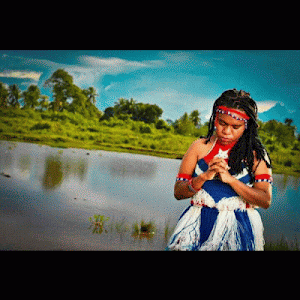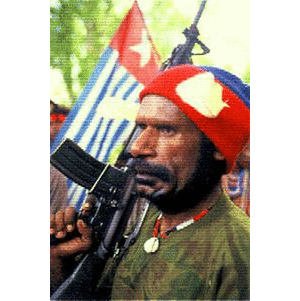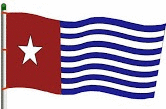Since
its foundation as a modern state in the 1940s, Indonesia has been plagued by a
series of conflicts that have threatened the dream of a united republic,
inflicted grievous human rights violations and poisoned perceptions of the
place, not least in Australia. In recent years, these have included
independence movements in Timor-Leste, Aceh and West Papua and violent communal
unrest in central Sulawesi.
West
Papua is the last of these major conflicts to be tackled. Though they involved
the spilling of much blood and many secondary issues remain, each of the other
issues has been resolved with varying degrees of success. Only West Papua,
perhaps the most complex and intractable of them all, remains. Attempts at a
settlement by previous post-Suharto presidents, particularly Gus Dur and SBY,
have failed. It is now the turn of Indonesia’s incoming president, Jokowi, to
address the issue.
Jokowi
is well positioned to act. He is expected to focus more on getting Indonesia’s
house in order than on world affairs and he has already clearly indicated that
this agenda includes West Papua. West Papua was the first place he visited at
the start of his election campaign where he underlined a personal connection by
taking his wife Iriana with him; her grandfather taught there and she is named
after Indonesia’s original name for the region. He acknowledges the need to
address West Papua’s serious development deficit including the cost-of-living
disparity between eastern and western Indonesia and has committed to lifting
the standards of education, health and the public service that are his
trademark concerns and are central to the interests of the poor in West Papua.
Jokowi
comes to the issue fresh and free of political baggage and hang-ups. He is not
part of the old regime that has caused such grief to West Papuans over the last
50 years. He has turned dialogue, a modus operandi also advocated by West
Papuans, into an effective art form. In one of his presidential debates with
Prabowo, an ex-Kopassus commander, he pointedly highlighted his preference for
dialogue over military solutions. West Papuans seem to like what’s on offer.
Roughly 70% of voters across the region’s two provinces opted for Jokowi over
Prabowo. Experts predict that Jokowi’s vice-president, Jusuf Kalla, who is
credited with helping settle the conflicts in Aceh and Poso referred to above,
is also keen to try his hand in West Papua.
The
old guard can be expected to resist Jokowi on West Papua including his belief
that foreign media and human rights organisations should be allowed to visit
the region. But he will enjoy the support of many Indonesians who share his
concern for West Papua. The issue is no longer off-limits in Indonesia.
Indonesians are aware of the many challenges to be addressed. Regularly
reported in the mainstream media, these include clashes between the military
and the OPM, human rights, HIV-AIDS, domestic violence, ethnic fracas and the
Freeport mine. Communications, including social media, tourism and travel in
and out of the region are routine and non-Papuan civil society is better
educated today about the history of Indonesia’s annexation, the dubious legal
basis of that claim and related West Papuan grievances such as fears of being marginalised
in their own land.
Though
Jokowi was conspicuously silent on Timor-Leste during the presidential
campaign, Indonesia’s former 27th province holds, I believe,
important lessons for him in relation to West Papua. One obvious lesson is not
to place too much store on defections from the OPM. Like Nicholas Jouwe, the
co-founder of the OPM who was recently awarded a distinguished service medal by
President SBY in Jakarta, some senior Timorese also collaborated at various
points in their campaign. Another is that West Papua, like Timor-Leste
previously, is not just a developmental challenge. Indonesia spent heavily on
development in Timor-Leste but neither this nor the offer of special autonomy
in 1999, of the kind since implemented in West Papua, addressed the underlying
political and identity grievances of the Timorese. Though much needed,
development recipes on their own will not be enough to meet all West Papua’s
aspirations. Jokowi would also be well advised to listen to the Protestant and
Catholic churches in Papua. They represent well over 70% of the population and,
as with the church in Timor-Leste, are an influential and credible force.
Settlement
of the West Papua issue can only come from Indonesia and the Jokowi presidency
offers the best prospects for this in half a century. Creating the conditions
in which inclusive dialogue based on mutual respect can occur will tax the
political imagination and creativity of all involved. The trust and goodwill
Jokowi enjoys, including in West Papua, make for an excellent start to this
important enterprise.
Resources: http://www.eurekastreet.com.au
















0 komentar:
Posting Komentar